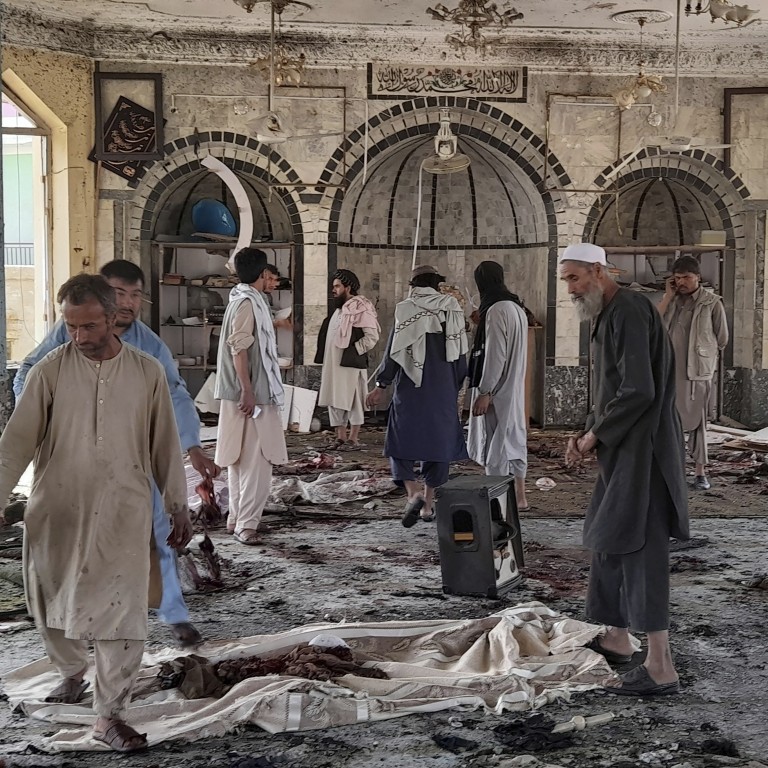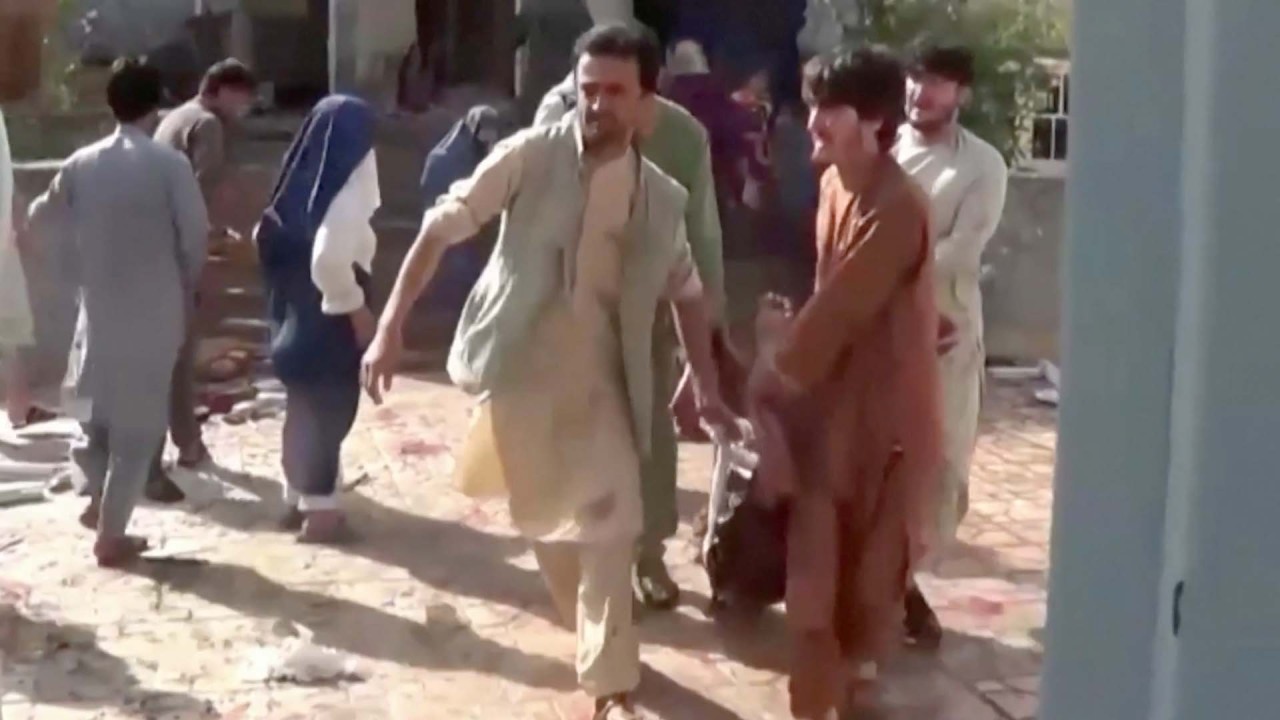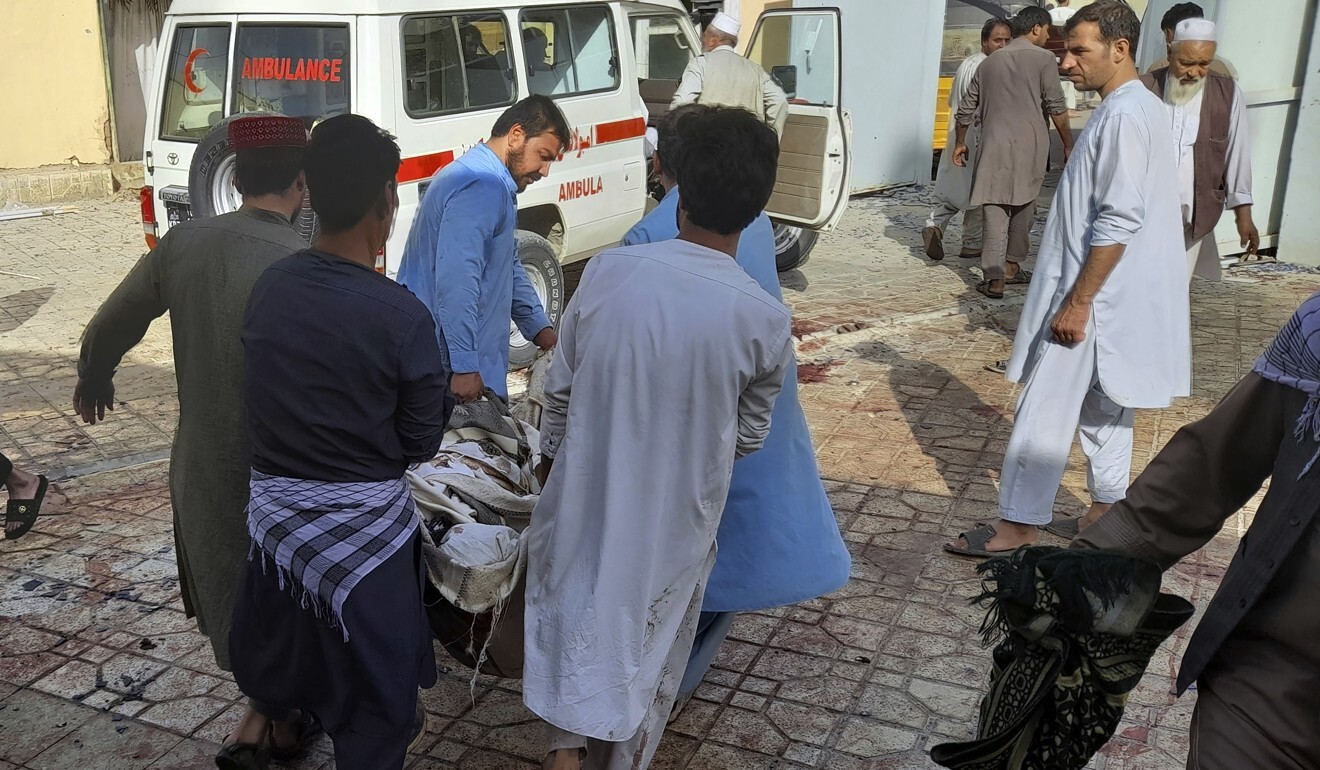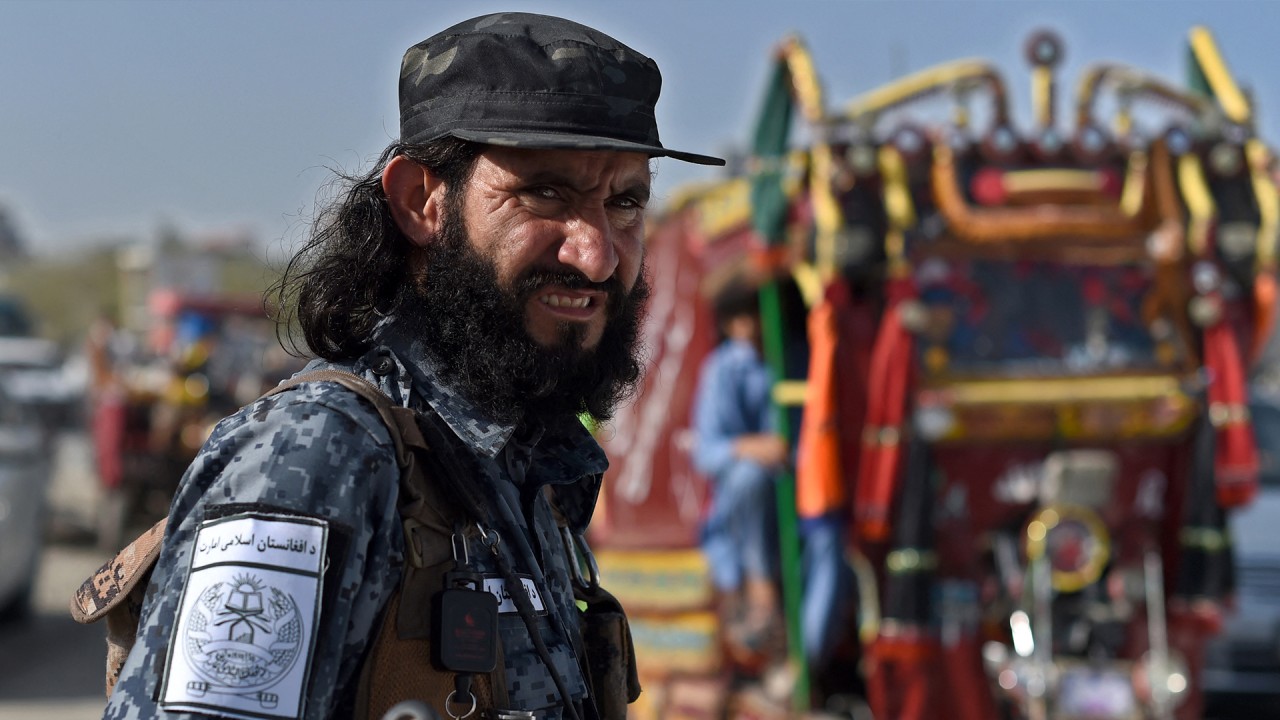
Suicide bombing at Afghanistan’s Kunduz mosque kills at least 55 worshippers
- Scores from the minority community were wounded in the attack at a Shia mosque during Friday prayers
- Images shared on social media showed several bloodied bodies lying on the floor and plumes of smoke rising into the air over Kunduz
An suicide bomb attack on worshippers at a Shia mosque in the Afghan city of Kunduz killed at least 55 people Friday, in the bloodiest assault since US forces left the country.
Matiullah Rohani, director of culture and information in Kunduz for Afghanistan’s new Taliban government, said that the deadly incident was a suicide attack.
A medical source at the Kunduz Provincial Hospital said that 35 dead and more than 50 wounded had been taken there, while Medecins Sans Frontieres hospital said 20 were dead and scores more wounded.
Taliban spokesman Zabihullah Mujahid had earlier said an unknown number of people had been killed and injured when “an explosion took place in a mosque of our Shiite compatriots” in Kunduz.

01:02
Suicide bombing at Afghan mosque kills at least 46 people: state news agency
The attack was later claimed by the Islamic State Khorasan (Isis-K) group. In a statement released on its Telegram channels, the jihadist group said that a suicide bomber “detonated an explosive vest amid a crowd” of Shiite worshippers who had gathered inside the mosque.
In a second statement, Isis-K said the “perpetrator of the attack was an Uygur Muslim”, a minority that the “Taliban had vowed to expel” from Afghanistan.
The extremist group, bitter rivals of the Taliban, has repeatedly targeted Shiites in a bid to stir up sectarian violence in Sunni majority Afghanistan.
Taliban forces ‘destroy’ Isis hideout after Kabul mosque bombing
Residents of Kunduz, the capital of a province of the same name, said the blast hit a Shia mosque during Friday prayers, the most important of the week for Muslims.
Zalmai Alokzai, a local businessman who rushed to Kunduz Provincial Hospital to check whether doctors needed blood donations, described horrific scenes.
“Ambulances were going back to the incident scene to carry the dead,” he said.
An international aid worker at the MSF hospital in the city said there were fears the death toll could rise.
“Hundreds of people are gathered at the main gate of the hospital and crying for their relatives but armed Taliban guys are trying to prevent gatherings in case another explosion is planned,” he said.

Graphic images shared on social media, which could not immediately be verified, showed several bloodied bodies lying on the floor. Pictures showed plumes of smoke rising into the air over Kunduz.
Another video showed men shepherding people, including women and children, away from the scene. Frightened crowds thronged the streets.
Aminullah, an eyewitness whose brother was at the mosque, said: “After I heard the explosion, I called my brother but he did not pick up.
“I walked towards the mosque and found my brother wounded and faint. We immediately took him to the MSF hospital.”
US eyes air strikes on al-Qaeda in Afghanistan
A female teacher in Kunduz said the blast happened near her house, and several of her neighbours were killed. “It was a very terrifying incident,” she said.
“Many of our neighbours have been killed and wounded. “A 16-year-old neighbour was killed. They couldn’t find half of his body. Another neighbour who was 24 was killed as well.”
Kunduz’s location makes it a key transit point for economic and trade exchanges with Tajikistan.
It was the scene of fierce battles as the Taliban fought their way back into power this year.

04:01
From extreme violence to keeping law and order, Taliban police patrol Afghan capital Kabul
Often targeted by Sunni extremists, Shiite Muslims have suffered some of Afghanistan’s most violent assaults, with rallies bombed, hospitals targeted and commuters ambushed.
Shiites make up roughly 20 per cent of the Afghan population. Many of them are Hazara, an ethnic group that has been heavily persecuted in Afghanistan for decades.
In October 2017, a lone Isis suicide attacker struck a Shia mosque as worshippers gathered for evening prayers in the west of Kabul, killing 56 people and wounding 55, including women and children.
And in May this year, a series of bombings outside a school in the capital killed at least 85 people – mostly young girls. More than 300 were wounded in this attack on the Hazara community.

.png?itok=arIb17P0)